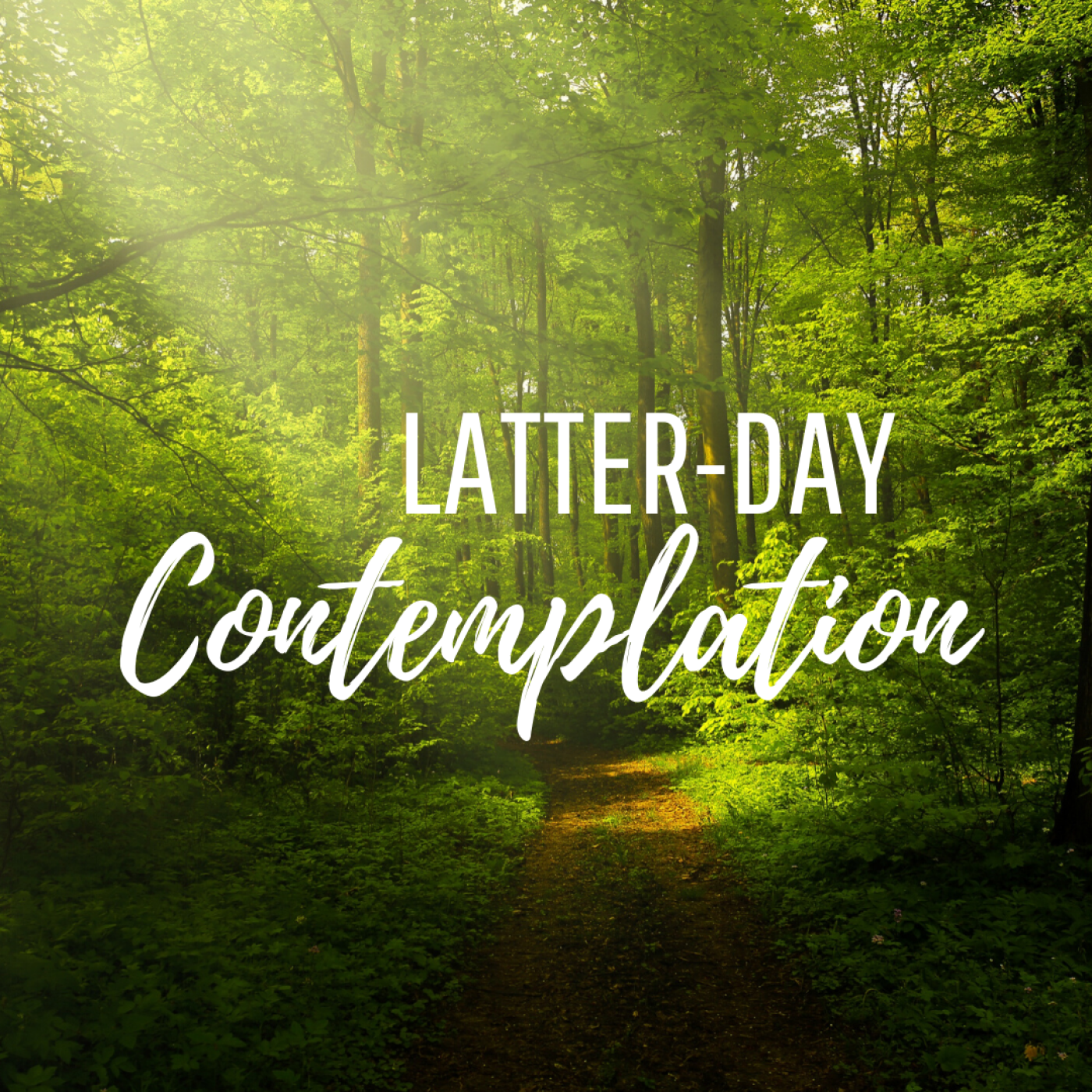-
Episode 62: On Sufism
Among the world’s many religions are shadow traditions that express the esoteric or mystical experience of divine union. In Christianity this is manifest in ecstatic, revelatory examples, such as within restorationist movements, in monastic cloisters, and through spontaneous re-emergence among individuals and small groups accessing truth through mystical experience. Parallel to the ascendance of the Islamic faith was a movement that drew from a deep and ancient well of mystical practices and understandings, called sufism. In this episode we welcome Sufi master, al-hajj Daud, also known as Dr. David Peck to discuss his fascinating discovery of sufism as an active and participating latter-day saint, how it has enhanced his faith,…
-
Episode 91: Genesis 34-41
This week the Come Follow Me curriculum omits a few chapters in Genesis. Ben and Christopher discuss these anyway since they touch on important themes. Reuben, Simeon, Levi, and Judah in turn all make choices that put their legitimacy as heirs in question. Jacob returns to Bethel to establish a mode akin to temple worship. Isaac dies, and the presence of both Esau and Jacob hints at final reconciliation between the brothers. Joseph’s story begins, interrupted by the narrative of Judah’s impropriety. This contrasts with Joseph’s character and legitimacy as the heir of the birthright of Israel. Joseph is sold into Egypt and the Lord is with him through it…
-
Episode 90: Gen 28 – 33
The story of Jacob repeats previous themes from the stories of Abraham and Isaac. How does Jacob view his relationship with God and others and how do these relationships affect each other? Why might Jacob struggle to forgive and what other things does Jacob struggle with before and after being named Israel (one who struggles/strives/perseveres with God)? Jacob often fears the outcomes of situations that work themselves out. Does Jacob learn to trust God?
-
Episode 61: Our Faith and Identity
In the opening of his Sermon on the Mount, Jesus teaches that the kingdom of heaven belongs now to the "poor in spirit", which translates as "the very empty ones". What does that kind of poverty or emptiness imply? Surely Jesus wants us to have an abundance of His Spirit, but is our vessel empty? In this episode Christopher and Riley break down identity recognition, formation, and cleansing. They hit on what might be considered positive and negative aspects of the identity formation process, with a view towards the beatitudinal ideal of non-attachment to the identities of what many have referred to as "the false self".
-
Episode 89: Gen 24 – 27
As Abraham’s heir, Isaac models the same values of peacemaking and hospitality as his father. Rebekah is an example of these values and is sought as a wife for Isaac. Previous themes of Genesis re-emerge in these chapters. Jacob receives the birthright even though he is the younger son. Jacob and Esau echo the story of Cain and Abel.
-
Episode 88: Gen 18 – 23
Episode 88 The story of Abraham continues with the narrative of Lot and the destruction of Sodom. The ambiguity of the characters and conversations makes interpreting events difficult. Abraham models appropriate hospitality while Lot imitates it. Ben offers a potential historical reading of the Sodom account that might help explain the strange sequence of events. What was the explicit sin of Sodom as opposed to the traditional view? Did God really command Abraham to sacrifice his son? Christopher brings in additional versions of the story from other traditions. Studying these additional versions and the story of Abraham in The Pearl of Great Price opens up a new interpretation. Might we…
-
Episode 60: Certainty From Doubt
about arriving at certainty through methodological doubt. The conversation begins with the uncannily similar methodological doubt of medieval Muslim philosophical theologian and Sufi mystic al-Ghazali (1056 or 1057-1111) and the first modern philosopher, René Descartes (1596-1650), by which each arrives at certainty through direct experience of what Descartes calls “clear and distinct ideas” and Riley and Christopher share their own experience.
-
Episode 59: On Knowing
In this episode, guest-host Lindsey Ohlin is joined by educator Tom Bogle as they discuss their similar experiences with an unhealthy relationship surrounding the idea of knowing. What stumbling blocks might we encounter in our pursuit of perfect knowledge and how might that influence how we see our place in the world? What is the relationship between knowledge and faith, and where does wisdom fit into that equation? The pursuit of knowledge can often lead us toward better answers, but can the pursuit of wisdom lead us down a path toward asking better questions?
-
Episode 87: Gen 12-17; Abr 1 – 2
The Biblical narrative of Abraham follows a chiasmic structure common to ancient Hebrew literature. Events proceed to a climax and then repeat in reverse order. The Book of Abraham in the Pearl of Great Price offers some enriching perspective to the overall story and highlights the key concept of Priesthood as a recurring theme and mode. Abraham is not only blessed, but is given the responsibility to bless all of humanity. The climax of the narrative centers on an unlikely person and offers profound insight into the character of God and his mercy. What is Abraham learning about God and what is significant about his literal and spiritual journey?
-
Episode 86: Gen 6-11; Moses 8
Readers of the Bible have wrestled with the narrative of the flood for centuries. How do we approach a text that portrays a God who does such things? What deeper understanding can we see in the symbolism of the story that doesn't require us to view God as vengeful and angry? In attempting to answer this question, a pattern of order, disorder, non-order, and reorder emerges. How does the text of the narratives of Noah and the Tower of Babel reveal an evolving understanding of God and humanity's relationship with the Divine?


